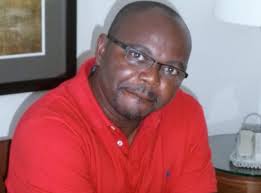 Dr Bob Offei Manteaw, lecturer
Dr Bob Offei Manteaw, lecturer
Dr Bob Offei Manteaw, a lecturer at the Africa Institute of Sanitation and Waste Management has called for a National Dialogue on the future of education in the country.
Dr Manteaw said Ghana should review its educational policies by adopting teaching and learning approaches that empower learners to solve social and ecological challenges.
He therefore called on the government, educational leaders and stakeholders to consider a wholesale overhaul of teaching and learning in schools.
Dr Manteaw, who was speaking in an interview with the Ghana News Agency in Accra on Monday, said the current social and ecological challenges such as sanitation, climate change and disasters facing the country have exposed obvious lapses in educational standards.
He noted that there is an obvious disconnect between what is taught in school and what pertains in the communities and both students and school graduates are not able to make the connections between “landscapes and mindscapes”.
According to him, “young people cannot identify and anticipate problems and respond to them accordingly”.
He added that because education has become exclusively theoretical and class-room based, students lack the opportunity to make the necessary connections between intelligence and experience.
Dr Manteaw who is also the Director of Research, Innovation and Development at the AISWAM said, the recent flood and fire disasters in Accra are events that pointed to certain failures in leadership and decision making.
He said among the problems is the critical failure in people’s ability to make sound and timely judgments about risks, dangers, safety and the required responses.
He acknowledged the infrastructural challenges in waste management such as unavailability of waste receptacles and final disposal sites, adding: “I am of a strong opinion that education; both formal and non-formal have also failed in helping people make the required connections between clean environment and public health”.
Dr Manteaw said some educational institutions in the country teach and discuss environmental sanitation issues from books and in classrooms while schools are engulfed in filth.
“Lessons on sanitation should be located in context and connected to the existential realities of learners and in their local communities. Thus for a subject like environmental sanitation, there is no better teaching and learning resource than the choked drains in a community.”
He said students must be sent out to experience the sanitation challenge by looking at the problem from a solution-based perspective and should be challenged to ask deep and intellectual questions about how the filth came, how it could be cleared and how it could be stopped.
Dr Manteaw who is also an expert in development education and communication called for urgent changes in Ghana’s educational approaches and adapt experiential and community-focused learning approaches where teaching and learning were directed at solving real problems.
“Until such a time that we connect education and learning to our everyday challenges such as environmental sanitation, agriculture, poverty eradication, sustainable development, forest degradation, our educational systems and approaches will only prepare students whose only aspirations will be to work as Bank tellers.
“The institute has emerged out of Zoomlion’s operational activities and the need to train and build the requisite capacity for that sector“he said.
“The institute students are taught by front-line waste and sanitation practitioners who bring their on-the-ground experience to bear on the learning processes and challenges students to step into their communities and identify real problems and to explore transformative solutions.”
Dr Manteaw said: “As a country with all sorts of development challenges, our only hope is education and the right type of teaching and learning must happen.”